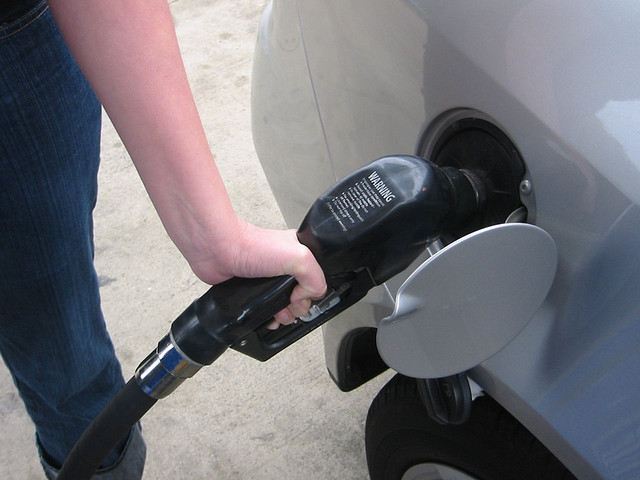Gas tax bill approved by Senate committee
A controversial gas tax hike already passed by the House of Delegates was approved by a Senate committee on Thursday, moving it one step closer to becoming law.
The committee also unanimously passed a constitutional amendment to require a three-fifths supermajority vote to prevent transportation money from being used for other purposes.
If passed, HB1515 will steadily increase gas taxes by at least 12 cents over the next two years and will direct that money toward construction projects on roads and mass transit, but it will only take effect if it is passed by both chambers of the General Assembly before the end of the legislative session on April 8.
The current gas tax is 23.5 cents per gallon, and that will go up to at least 35 cents per gallon in 2015, and that will be indexed to inflation, one of the most objectionable features of the bill to opponents. The tax will go even higher if Congress does not pass a bill allowing states to tax all Internet sales.
The bills approval by the Budget and Tax Committee means that the bill will probably reach the Senate floor tomorrow.
One Democrat and all three Republicans vote against it
The committee voted 9-4 in favor of the bill, with dissenting votes from Senators James DeGrange, D-Anne Arundel, Richard Colburn, R-Dorchester, David Brinkley, R-Frederick, and George Edwards, R-Garrett.
Colburn proposed four amendments to HB1515, including one requiring that half of all transportation funds be spent on highways, but all of these proposals were rejected by the committee.
Montgomery County Democrat Sen. Richard Madaleno said that it was not necessary to restrict half of the transportation funds to highways. It will take a few years for the state to start construction on the Red Line — a proposed East-West Baltimore light rail line — and other transit projects, he said.
“The reality is that most of the money this year is going to go for road projects,” Madaleno said. “There’s only been a short period of time where we’ve seen transit funding eclipse highway funding, and that will change soon.”
Sen. Roger Manno (D-Montgomery) said that the state ought to create incentives for Marylanders to use transit rather than roads.
“We need mass transit,” he said. “We need people to get out of their cars and to find other ways of getting around.”
Brinkley said that it was unfair to spend more on transit than roads.
“If you’re going to have this bill move forward, let the people that are paying for it – the motoring public – enjoy some of the benefits.”
Constitutional amendment on lockbox also approved
The committee also unanimously passed a bill proposed by Senate President Mike Miller that would create a lockbox for the Transportation Trust Fund, prohibiting the state from using that money for non-transportation purposes. The only exception would be when the Governor declares a fiscal emergency and a three-fifths majority of both houses of the General Assembly agree that the transportation trust fund may be used for other purposes.
Madaleno said that he supported the lockbox in order to reassure taxpayers that their money would be well spent and that revenue raised through the gas tax increase would not be directed to non-transportation programs.
“We want to make it clear to the voters that this money is going to transportation,” he said.
The O’Malley proposal passed by the House contained a weaker lockbox provision requiring three fifths votes in two standing committees before the Transportation Trust Fund could be used for other purposes. But since that was in statute and not the constitution, that requirement could be easily changed.
House Speaker Michael Busch was asked whether the House would accept the constitutional amendment, and he said, “We haven’t discussed it.”
At the end of the voting session, Budget & Taxation Committee Chair Ed Kasemeyer said, “It’s a frustrating bill to deal with,” but he did not explain why. Lobbyists trying to change the bill had been told that House leaders did not want the gas tax hike sent back with any amendments.
Editor Len Lazarick contributed to this story.

MarylandReporter.com is a daily news website produced by journalists committed to making state government as open, transparent, accountable and responsive as possible – in deed, not just in promise. We believe the people who pay for this government are entitled to have their money spent in an efficient and effective way, and that they are entitled to keep as much of their hard-earned dollars as they possibly can.

